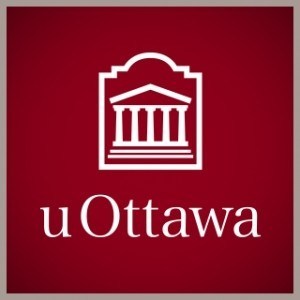Photos of university / #uottawa
The Bachelor of Applied Science (BASc) in Biomedical Mechanical Engineering at the University of Ottawa is a comprehensive undergraduate program designed to prepare students for cutting-edge careers at the intersection of healthcare, engineering, and technology. This innovative program combines principles of mechanical engineering with biomedical sciences to develop solutions that improve human health and quality of life. Students will gain a strong foundation in core engineering topics such as mechanics, thermodynamics, materials, and systems design, integrated with specialized courses in biomechanics, biomedical instrumentation, biomaterials, medical device design, and tissue engineering. The curriculum emphasizes hands-on learning through laboratory work, project-based activities, and industry internships, fostering practical skills and real-world experience.
Throughout the program, students are encouraged to engage in interdisciplinary research and collaborative projects that address current challenges in medical technology and healthcare delivery. The program also includes training in ethics, regulatory standards, and entrepreneurship, preparing graduates to navigate the complex landscape of biomedical innovation responsibly and effectively. By combining engineering rigor with biomedical knowledge, graduates will be equipped to design and improve medical devices, develop new therapies, and contribute meaningfully to areas such as rehabilitation engineering, diagnostic equipment, and surgical tools.
The program benefits from the University of Ottawa's strong connections with local hospitals, research institutes, and industry partners, providing students with valuable networking opportunities and access to cutting-edge labs and resources. The interdisciplinary environment encourages collaboration among students from diverse backgrounds, fostering innovative thinking and problem-solving skills. Graduates of the Biomedical Mechanical Engineering program are well-prepared for careers in medical device companies, hospitals, government agencies, and research institutions, or for advanced studies in biomedical engineering or related fields. With a focus on both technical expertise and societal impact, this program aims to meet the growing demand for engineers who can contribute to advancements in healthcare technology and improve patient outcomes worldwide.
- Technical Report Writing
- Engineering Mechanics
- Fundamentals of Engineering Computation
- Calculus I
- Introduction to Linear Algebra
- Human Anatomy and Physiology II
- History of Healthcare
- Calculus II
- Introduction to Mechanical Engineering
- Fundamentals of Physics II
- Engineering Economics
- Introduction to Product Development for Engineers and Computer Scientists
- Calculus III for Engineers
- Ordinary Differential Equations and Numerical Methods
- Mechanics II
- Thermodynamics I
- Engineering Materials I
- Mechanics of Materials
- Electric Circuits and Machines for Mechanical Engineering
- Probability and Statistics for Engineers
- Introduction to Design
- Thermodynamics II
- Biological and Engineering Materials II
- Electronics for Mechanical Engineers
- Mathematics for Engineers
- Biomechanics
- Biomedical System Dynamics
- Fluid Mechanics I
- Engineering Law
- Heat Transfer
- Dynamics of Machinery
- Machine Design
- Control Systems
- Bio-Fluid Mechanics
- Design of Artificial Joint Prostheses and Implants
- Computer-Aided Design
- Manufacturing
- Bioethics
- Scientific Thought and Social Value
- Technology Entrepreneurship for Engineers and Computer Scientists
- Technology, Society and Environment since 1800
- Bioinstrumentation
- Design of Artificial Organs
- Mechanical Vibration Analysis
- Mechanical Engineering Laboratory
Requirements
- Attestat O Srednem (Polnom) Obschem Oobrazovanii
- If you’re applying for a program in English, and you have not completed at least three years of full-time study in an institution where English is the only language of instruction (aside from in language courses), located in a country where English is an official language, you must provide your official score in one of the language tests recognized by the University.TOEFL Internet: 86, Computer: 237, Paper-based: 580. IELTS 6.5
- You have a minimum of 12 successfully completed CEGEP courses, excluding Physical Education and make-up courses
Scholarships
- Merit Scholarship
- The Work-Study Program
- President's Scholarship
- Chancellor's Scholarship
- Faculty of Engineering Memorial Scholarship
- University of Ottawa Financial Aid Bursary
- Student Mobility Scholarship
The Bachelor's program in Biomedical Mechanical Engineering at the University of Ottawa offers students a comprehensive education that combines principles of mechanical engineering with biomedical sciences. This interdisciplinary program is designed to prepare graduates for careers in healthcare technology, medical device design, rehabilitation engineering, and biomedical research. The curriculum includes core courses in mechanics, electronics, material sciences, and biology, fostering a deep understanding of how mechanical systems can be applied to solve medical and health-related challenges. Students gain hands-on experience through laboratory work, design projects, and co-op opportunities that facilitate practical application of theoretical knowledge in real-world settings. The program emphasizes innovation, critical thinking, and technical skills necessary for advancing biomedical engineering solutions.
Throughout the degree, students are exposed to cutting-edge topics such as biomechanics, biomaterials, medical imaging technologies, and robotic surgery. The program also incorporates training in regulatory standards and ethical considerations relevant to medical device development and healthcare innovation. Interdisciplinary collaboration is encouraged, enabling students to work alongside researchers and professionals from medicine, engineering, and health sciences. The University of Ottawa supports students with state-of-the-art facilities, including specialized laboratories and research centers focused on biomedical engineering innovations.
Graduates of the Biomedical Mechanical Engineering program are equipped to pursue careers in biomedical device companies, hospitals, research institutes, or continue their education in graduate studies. The program’s strong industry connections and co-op component enhance employment prospects and professional development. Overall, this program aims to produce well-rounded engineers capable of contributing to advancements in health technology, improving patient outcomes, and addressing global healthcare challenges through engineering solutions.


